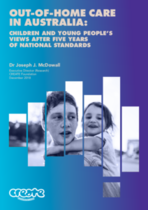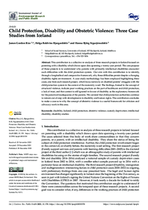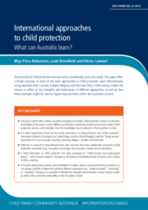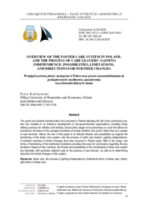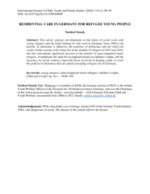Out-of-home care in Australia: children and young people’s views after 5 years of national standards
This report details the findings of a survey of 1275 children and young people with a care experience with a diverse range of backgrounds in Australia

